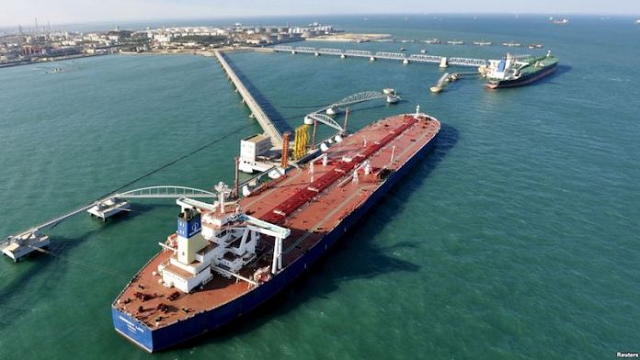The National Bureau of Statistics (NBS), has stated that the value of the manufacturing trade deficit in the fourth quarter of last year (2021), was N2.6 trillion.
NBS made this disclosure in its ‘Foreign Trade in Goods Statistics’ for Q4 2021, where it noted that the total manufacturing import was about N3 trillion, while export was N395.48 billion in Q4 2021.
What you should know about Nigeria’s trading
A trade deficit occurs when a country’s imports exceed its exports in a particular period. The analysis shows that Nigeria’s imports of manufactured goods exceeded the exports of such goods in Q4 2021.
In October 2021, the country’s import was N904.52 billion while export was N184.55 billion. By November 2021, the import was N1.03 trillion while export was N181.12 billion.
At the end of Q4 2021 in December, the import was N1.06 trillion while export was N29.81 billion.
Generally, the NBS report revealed that the value of imported manufactured goods increased by 15.11% while the value of exported manufactured goods dropped by 38.77%.
The NBS report further disclosed that the total value of manufactured goods traded in Q4 2021 was N3.4 trillion, which was 29.01%t of total trade for that quarter.
The report also noted that the major export goods in this quarter were floating or submersible drilling platforms exported to Namibia and Cameroon valued at N264.54 billion and N0.79 billion respectively.
Experts highlight manufacturers’ challenges in Nigeria
The Chairman, Board of Directors, Manufacturers Power Development Company, a member of the Manufacturers Association of Nigeria (MAN), Ibrahim Usman, said there were a number of issues affecting the export of manufactured goods from Nigeria.
According to him, the Nigerian government has not fully supported manufacturers in the area of custom duty, foreign exchange, and manufacturing processes.
He said, “It is a mixture of several things. All of them are important. First and foremost, the Nigerian government through the Central Bank and the Minister of Finance is not serious about supporting the manufacturers.
“Competitiveness in the international market depends to a great extent on the support given to local manufacturers of any country by their government – the issue of custom duty, ease of getting the foreign exchange, issue of facilitating the manufacturing processes (for example having power).”
Similarly, Secretary, MAN Export Promotion Group, Benedict Obhiosa, identified some of the challenges as the gridlock in Apapa, port congestion, high shipping costs, and logistics costs.
“The export issues are obvious. For example, the Apapa gridlock is an issue for exporters. Port congestion is another issue. The high cost of the fleet by shipping agencies is another issue. This has even quadrupled from what it used to be. Then, domestic charges of logistics from your factory to Apapa are another huge challenge for manufacturers.”
Obhiosa added that manufacturers were struggling with the lack of adequate foreign exchange to purchase raw materials and poor power supply, which they said, hampered the productivity of these companies.
“The scarcity of dollars for manufacturers to buy their requisite raw materials is another challenge. There is also the cost of energy, with the increase in the cost of diesel. This is posing a serious challenge to the manufacturers,” Obhiosa added.














